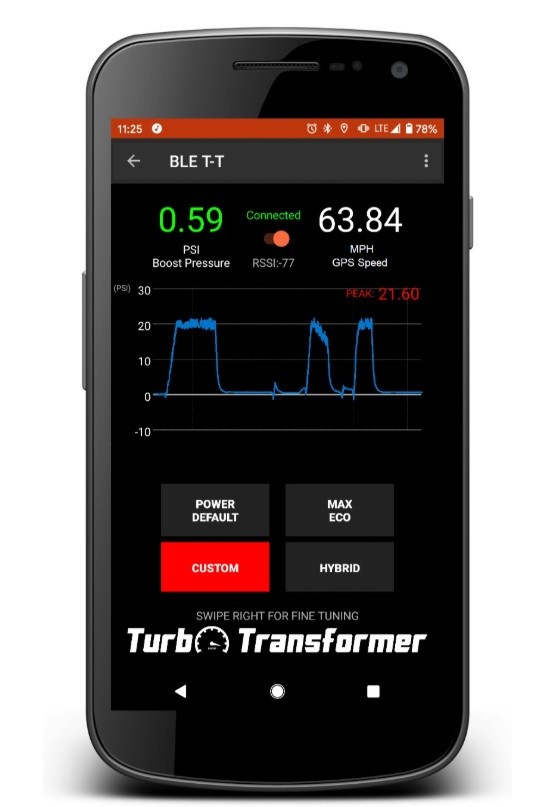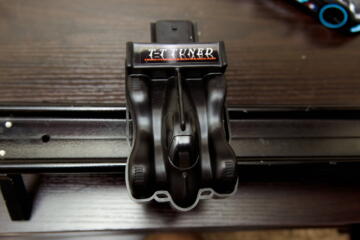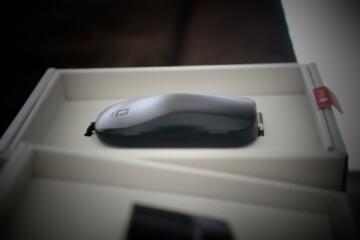The Turbo Transformer Review, More Than Meets The Eye?
As auto manufacturers face increased scrutiny from regulators, they are now forced to make their cars more fuel efficient while still maintaining the power outputs many of us have grown accustomed to. To accomplish this, most cars now utilize small high output powerplants. These engines maintain the power figures of their high displacement predecessors by utilizing forced induction technologies such as Superchargers or more commonly Turbochargers. Forced Induction technology has been around for over a century! In modern times though they’ve seen a lot of use in the Turbo-diesel engines used in Pickups and Semi-Trucks. More recently though with fuel prices through the roof we’ve seen a lot of passenger vehicles embracing the turbo. Audi, Volvo, and Porsche are some of the OGs in the turbocharging game, but now, almost every car company has their own flavor of turbo engines. So, you’re probably asking, why the history lesson? Get to the point, okay okay! Well, one of the main advantages of modern turbocharged engines is their ability to be easily tuned. When I say easy, trust me, 15 minutes and a few dollars can give you 50 to 100HP+ depending on the engine. So now you’re probably saying, what’s the catch? To be honest, outside of the fact that exceeding the factory limits of your turbos will definitely (possibly) void your warranty, no catch! That being said, not all solutions are equal. For modern cars there are two main ways to electronically increase the performance of your turbocharged engine. The first and most recommended by diehard digital gearheads is a tune.











In Tune
You may have heard the terms tuning or remapping thrown around if you ever looked into boosting the performance of your car. Basically, a tune or remap modifies the parameters of your car’s Engine Control Unit (ECU). To get your car tuned you’re going to need two things. An interface to your ECU, usually in the form of a specialized OBDII dongle and a license to custom tuning software. See, easy, right? Not quite. Yes, these are the basic requirements to facilitate a tune on an engine but there’s one main thing that you need to successfully and reliably increase the performance of your car’s powerplant. Experience, the reason this is important is that modifying the wrong settings will kill your turbos and maybe even the whole engine. Experience is not cheap though; a knowledgeable tuner and dyno time (usually required) is an expense that can significantly cut into your car modding budget. Sometimes multiple attempts are needed to dial in that tune and extract the most performance from your car’s engine.
Out of Tune
If you want the most performance for your money a tune is definitely the way to go but, and it’s a big one! Once you’re tuned, you may as well drive around with a massive decal on your car that say’s “I’m Tuned”, because almost any diagnostic check done by a dealer will detect a tune if you ever run into engine problems. Most tuning tools have a way to restore the original settings of your ecu, so it may not be readily apparent, but, if you ever have a catastrophic engine failure (the expensive kind), good luck!… So, I said all that to say that yes! A tune will give you the best bang for your buck, that is of course until your engine goes boom and the buck stops with you. Tuning is an art and a science and the best way to make sure that you’re safe is to go with a well-known, proven, and vetted tuner. The best way to find out who the best tuners are for your platform is to peruse the various forums, and message boards related to your make and model of vehicle.
An Alternative
A less popular option to ECU tuning but just as effective is something called “Piggyback Tuning”. This is where you place a controller with some combination of electronics between your ECU and the sensors that feed it. These sensors give it the information it needs to adjust the performance parameters of your engine. Intercepting and modifying those signals can lead to big gains, especially for Turbocharged engines. One of the biggest ways to increase power from a turbo engine is to increase boost, typically measured in (Pounds per Square Inch) PSI. A good piggyback tuner will allow you to modify multiple parameters while also providing monitoring functionality to make sure that your car doesn’t “blow up” i.e., enter an over boost condition that could lead to premature turbo failure. As far as options in the piggyback turbo tuning world the main players are Burger Motorsports and Race Chip. There are also a few lesser-known names out there including the unit I’m reviewing today. Enter the Turbo Transformer Tuner! I know, I know, you’re probably having visions of Bumblebee, Optimus Prime and Megatron duking it out in a blaze of glory. I’ll be honest, the name could use a little work, but the unit is solid. The mind behind the Turbo Transformer has been in the ECU engineering and development industry for several years now and has solid credentials in the automotive industry. The main benefit of the TT Tuner of course is the price. At the time of this review the unit was going for about $250 USD.
AutoBots Rollout
The Turbo Transformer is not the most advanced boost controller on the market nor the most popular (That distinction belongs to the Burger Motorsports JB4). What the TT Tuner is though, is the best value for money in the turbo piggyback tuning space. The TT Tuner is a simple no frills electronic boost controller that utilizes the factory ECU and OEM electronic waste gate actuators to increase the PSI output of the stock turbos which are typically detuned from the factory. The more advanced tuners have features that allow you to do data-logging, monitor important parameters such as AFR (Air Fuel ratio), engine temps and boost levels. The TT Tuner does none of that, well, you do get a real-time PSI and GPS speed readout but that’s about it. There are 3rd party OBDII adapters and software that allow you to monitor most of the parameters that the other tuners do, so you should be okay for the most part. I mean, with the money you’re saving you could probably grab another performance part and a dedicated OBDII Dongle for monitoring. The Turbo Transformer solution for my car came with the TT Tuner module and two sensor cables since there are two turbos in the car, I also received a free shirt which was appreciated.
The App
One of the standout features of the Turbo Transformer is the fact that it natively supports Bluetooth. This option on more popular tuners is an additional expense and their app may not even be included in that cost. The TT Tuner has all of that, albeit the experience is not as polished as the more established brands, but the basic functionality is there. When I performed my initial testing with the app it immediately detected the tuner. Upon first connection it required me to “Zero” the gauges to make sure that the TT Tuner had a baseline reading from the sensors, that way it could accurately report the PSI input and output of the sensors. The app also has a GPS speed display, I’m not sure if it’s using the phone’s GPS sensor or its own. I would lean to it being the phones GPS but I could be wrong. There seems to be a way to export data from the app for logging etc. But I was not able to get that to work. The app itself has not been updated in over a year which may be an oversight by the developer since this is the main competitive feature of the TT Tuner. To be fair though, it is a one-man operation, and he is competing against established companies with dedicated staff and budgets. That being said, in order for a business to grow, it needs to compete, otherwise it’s just an expensive hobby.
The Experience
Using the tuner was very straightforward. The model that I tested required me to tap into two sensors since the test car has a Twin-Turbo engine. This is all plug and play of course with the provided cable. Once the device is connected to the sensors it works its magic by intercepting the signals and “remapping” them. The tuner can trick the ECU into either producing more boost (higher PSI) or less boost (lower PSI). It does this by either underreporting or overreporting the actual PSI reading from the sensor. The ECU then compensates by either increasing or decreasing the PSI by the amount requested by the tuner. So in practice, if you increase the boost level by 2 PSI, (10PSI actual) the ECU will receive a reading that’s 2 PSI lower than the actual PSI (8PSI) and will increase the boost level an additional 2 PSI to compensate (12PSI). Confused, yeah, I was too at first until I saw it in action. In addition to controlling the PSI, the tuner also allows the user to control what PSI the tuner kicks in and starts adding boost. It also allows you to control the boost curve, so that the boost is either gradual or instant.
Drivability
I’ve been testing the tuner for a few months now and the experience has been good. In operation you don’t even realize it’s doing anything except for the extra power of course, and it’s a nice little boost. Most of the power on the test car came in at about 2500-4000 RPM, this will vary of course with each platform but the improvement was noticeable. Initially I was getting wheelspin with my stock narrow tires but after I upgraded to some wider wheels and tires I only saw wheelspin with aggressive throttle application during the initial acceleration from a standstill. There are times when the transmission seems to get confused but I can’t say for sure that the tuner is responsible for that. I do notice though that when the tuner is not active the transmission is less finicky.
Reliability
Based on what I’ve seen so far, the device seems to be a solid contender to the more established brands. Based on publicly sourced information it seems that the developer has a history working with ECU’s and has a few notable achievements to their name. I reached out to them for some additional information but did not receive a timely response. Now this brings me to the downside of this product, support, or the lack thereof. One of the main things that allow the other competitors in this arena to stand out is the fact that they’re established companies that also have other products on the market. The Turbo Transformer almost feels like a kid’s science project compared to the competition. The website is very sparse and although it gives some information about the product it is far from polished. The majority of the technical information about this product is provided by vendors or more precisely “a vendor” that visit’s multiple forums to “flog his wares”. the Turbo Transformer is not popular, and demand is very low compared to the competition because for one, people are not very keen to test something that has the potential to cause thousands of dollars in damage to their engines. There are others like myself though, who can usually sniff out a good product and are willing to take calculated risks to bring you reviews such as this one.
Final Thoughts
The Turbo Transformer tuner is a great product that is held back by poor marketing, limited support (compared to the competition) and finally by being a side project of its developer. This tuner could corner the market with the features it has included out of the box, throw in some boost tapering or max PSI limit option and a more streamlined, less gimmicky design and you may just have a contender. The tuner is extremely easy to install, leaves little to no trace on the ECU logs, provides several canned “tunes” and the ability to achieve 4+ PSI of boost over stock. It is a wolf in sheep’s clothing, but, until it gets a larger user base to allow the developer to make it better, it will have to settle for 5th place since there are more mature, proven and reliable options on the market. I hope the developer reads this review and uses it as motivation to make a more refined product. I like underdogs so I wish them the best. I’ll keep testing this tuner and will update this review accordingly.p.s. We really need a manual for a device that can potentially cause irreparable damage to a potential customers engine. We also need to get the word out about this tuner, maybe that will fix everything!

Megatron Approved!
A good no frills Boost controller for the frugal.
The Turbo Transformer is a great addition to a low budget performance setup. It will give a slight boost with a reliably mild increase in HP over stock. Support and documentation are limited. Also, the future of the product is iffy, so get it while you still can, but don't expect miracles.
Performance
Reliability
Features
Support
3.3
Not a lot more than meets the eye.
Discover more from Akiatech Solutions Blog
Subscribe to get the latest posts sent to your email.









